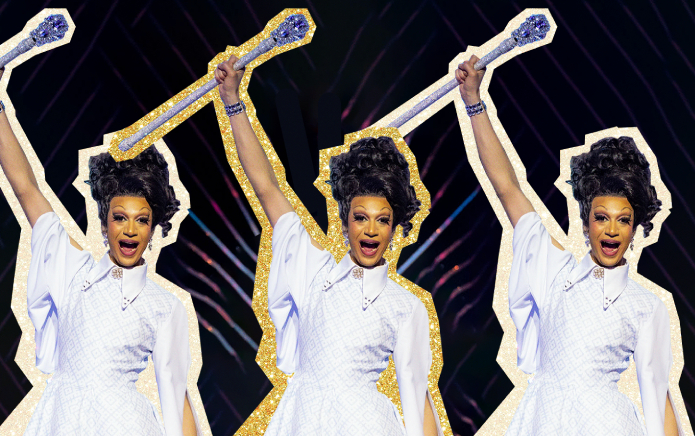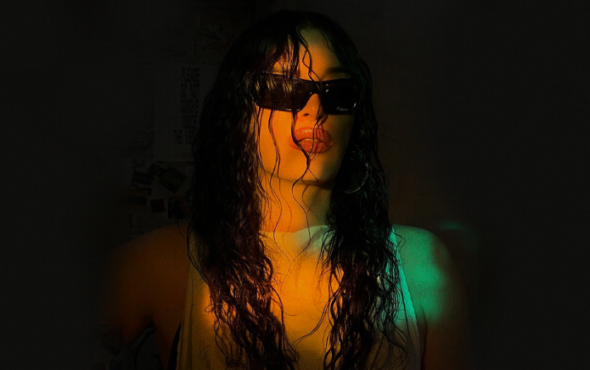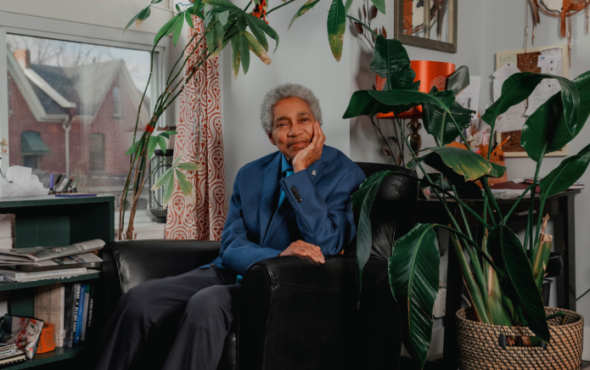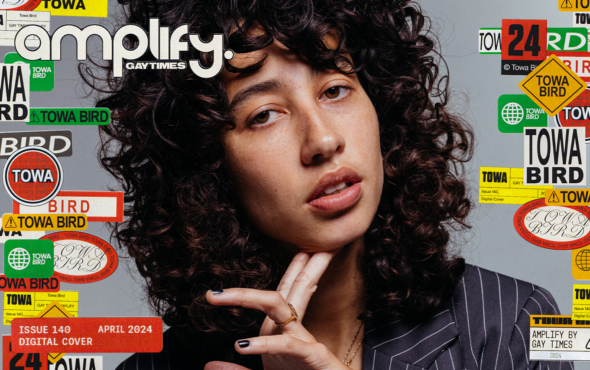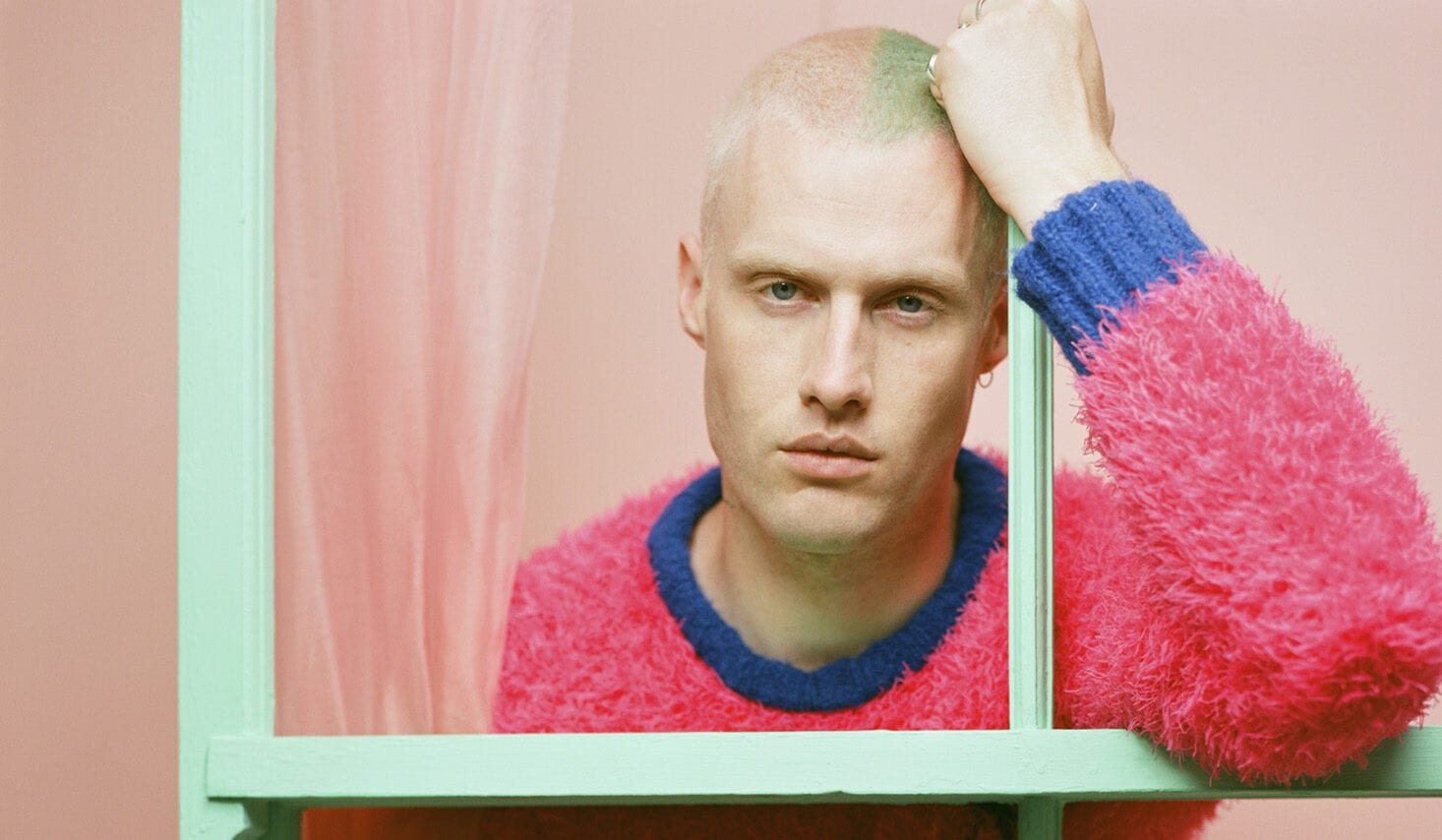
While the UK – like the rest of the world – started to go into lockdown earlier this year, British producer 220 Kid was on the cusp of scoring the biggest hit of his career so far. Don’t Need Love was released last December, but by April it had broken through to the UK Top 10. It was a bittersweet moment for the musician. Here was a monumental career milestone, but everything that would usually come with that – from televised performances, festival sets and hearing it blasted out in nightclubs – just wasn’t possible.
But 220 Kid – whose real name is Will – got to work on new music, creating enough, he says, to have his singles release schedule sorted for the next year. He’s starting with his massive new banger Too Many Nights, which features vocals from JC Stewart.
But aside from the music, Will is a committed ally to the LGBTQ+ community and has put using his platform and privilege to support and lift up marginalised communities as one of his priorities. After going to a Tove Lo gig earlier this year and seeing the safe space she had created for the LGBTQ+ community, 220 Kid is determined to make his dance floors a place where everyone can be themselves too.
Here we speak to the rising star about his new single Too Many Nights, why being an ally is so important to him, the importance of being open about mental health, and which Drag Race winner he’s currently hoping to work with on a massive new track.
Congratulations on the success of Don’t Need Love this year. The song just grew and grew and grew. Has its impact started to sink in yet for you?
I’ve not been able to experience it, because I can’t play shows and I couldn’t go do any television or face-to-face radio – anything like that. So I’ve not gotten to hear the song be sung back at me or hear it in a nightclub, so as far as I’m concerned I’ve just been sat in my room with more work to do! Every Friday I was getting sent a sales number that’s increased and I guess from industry people maybe more DMs or just people who are like fans of the song. But it doesn’t feel real because it feels like you’re just floating along like… today I’m in a really fancy studio and I made Don’t Need Love in a basement. I think I’m realising it more and more now and especially with support coming for the next single. I’m like, ‘OK this is actually quite something.’
How did you manage to keep yourself busy during lockdown?
So Don’t Need Love kind of became a hit in the first week of lockdown, so I had lots of projects to work on. It’s been a bit of a dream really because artists that I’ve always looked up to or wanted to work with, suddenly I was like sending out instrumentals or producing stuff and I’ve been able to work with Becky Hill, MNEK, and even Tiesto rang me up and was like,’Do you want to do something?’ But I’ve just been working loads and trying to capitalise on it and finish an album worth of work. I had a breakup as well so I was like, ‘Right I’ve got all this material, we can’t be wasting this sadness. I’m going through this heartbreak so I’m not going to not use this as the material!’ Apart from that I was in a WhatsApp group with loads of North London mums, so we used to get on Zoom and go to spin classes and that was it! Me and all these 50 year olds. So yeah, that’s kind of the extent of my hobbies.
With all this heartache you’re writing about we can expect a dance version of an Adele album then, right?
I’m actually at the point now where I’m like, ‘Oh fuck I’m sick of all these songs because they’re just heartbreak songs!’ It’s like going over it again but then, the way I see it I’m like, ‘Cool – hopefully that breakup will buy me a house. So thanks!’
Your new single Too Many Night is a huge banger. What’s the story behind this song?
The song is about jeopardising your relationship and chasing your dreams. You always have this balance of, even people who want to get a new job or move to a new city there’s always like a compromise that has to happen in a relationship. In my relationship it was on the rocks and I had to go to LA for work to keep pushing through what I was doing and they didn’t want me to go, and then obviously you go away and you maybe get caught up just like socialising at a party and you’re like, ‘Is it really worth being away and jeopardising that relationship?’ You’re kind of thinking about who’s at home waiting for you. But then the twist on mine was I got dumped the day I got off the plane! So it adds a nice little flavour to the song.
As you mentioned, you’ve been working an on an album worth of songs. Is that finished or is it an ongoing process?
I think I’m quite lucky that I’ve just kind of written loads of songs. The album is kind of there. I feel like we’ve got about a year’s worth of singles ready, unless we write something like really great. But I can only write if I need to express something – I don’t just go and write for the sake of it. I guess a very long, drawn out breakup was a lot of writing material and, I don’t know, other issues and things like my mum went through, she just finished cancer treatment after 18 months and so I wrote about that. I think it’s very important for me to write about something that is real and then people can connect to it. I’ve done shows in the past where at the end this lady was like, ‘I’ve been at home with depression for six months and this is the first time I’ve been able to come out in that time because I just connected with your music’. So I think it’s really important when you’re writing to be very sincere and be very honest. I can only write when I have something to say.
Listeners don’t always associate very personal songwriting with electronic music, so do you think that’s a big misconception of the genre?
Yeah, definitely. I think Becky Hill is a great example of that, she pours her soul into everything and has a lot of emotion. Maybe that’s kind of like where my success has come through. I don’t just sing about being in the club – not to take away from it because some of those songs are great – but I guess that’s why JC Stewart and I work well together because we’re both a bit sad really. But I always want to be happy, so when I wrote my first ever dance track it was a sad song but I just wanted to move a little bit more, so I put dance drums in it and then suddenly everyone was like, ‘Oh you make house music?’ But I just wanted to feel. Dancing On My Own by Robyn is a perfect example of bringing emotion to the dance floor. I think you’ve got to play to people’s emotions and give them something as an escape from the world.
Your dad managed the Bee Gees when you were growing up, so you have a very different perspective on the music industry. Did having that extra insight help in any way?
Honestly I was a bit of a loner kid! I got a job at 12 cleaning dishes and would just buy sweets. I was in the studio with the Bee Gees when I was eight, but I didn’t know what was going on so I was just like, ‘Oh I’m bored.’ We just lived in the middle of the countryside and it gave me a good awareness of how the industry is and how there are people around who don’t necessarily want the best for you. But apart from that, just being exposed to amazing music and amazing song writing was the benefit of it. At home, when I grew up I was given an old vinyl player and I had all these vinyls like classic Motown, love songs and disco. I think that helped with forming a knowledge of stories and lyricism and classic production using real instruments and pianos and strings. That comes through a bit more in Too Many Nights.
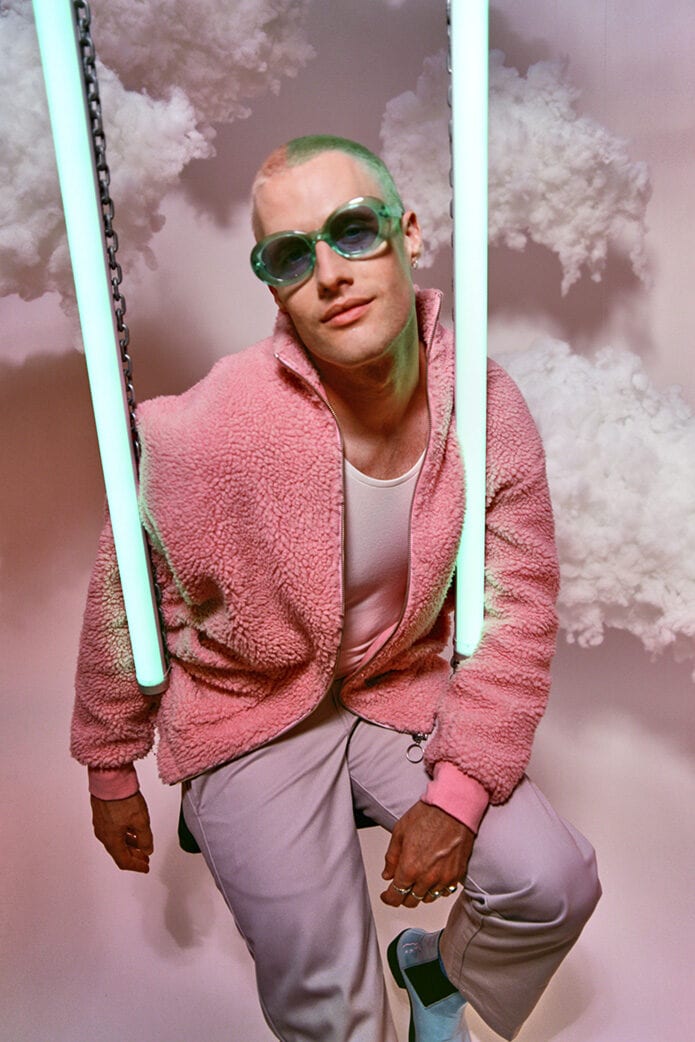
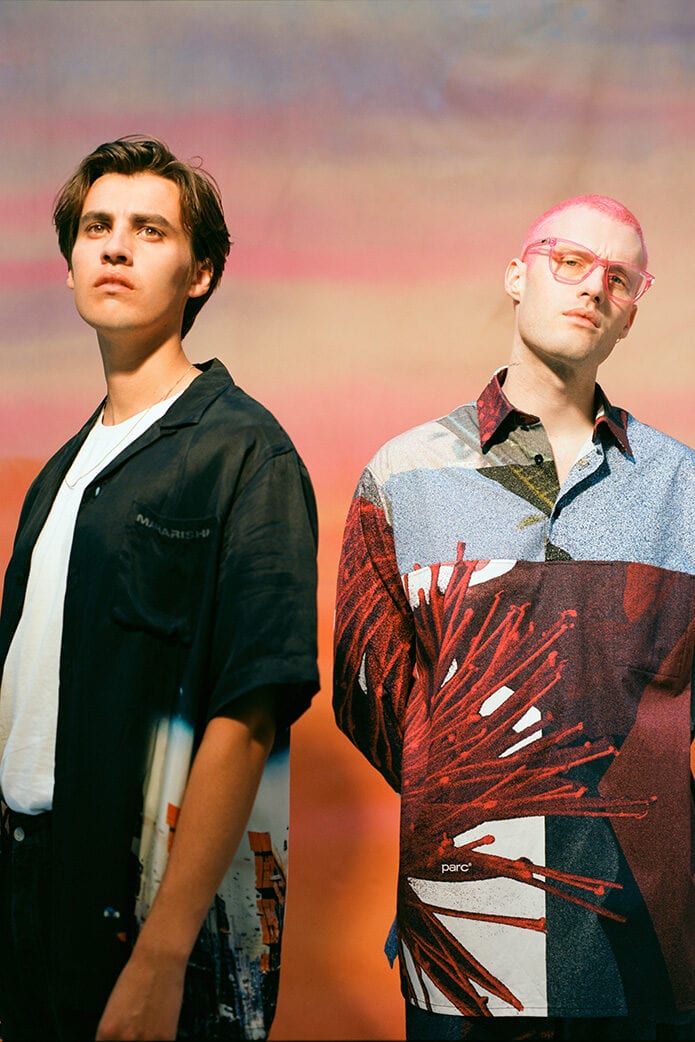
With that in mind, what’s the best piece of advice you’ve been given now that you’re becoming an artist in your own right?
I think it’s two things that someone said ages ago which I heard when I first started doing music. They were, ‘It’s got to be someone so why not me?’ Because you know everyone has these dreams and they’re like, ‘Well I can never do that.’ But someone has got to do it so why can’t it be you? Name a reason why it can’t be you and you can’t find enough reasons to not do it. Then, if you start, eventually you’re going to be closer to the destination than you are to the beginning. So again, just get on with it and eventually you’re going to be nearly there with your dreams and it’s possible.
You messaged me earlier this year after you’d just been to Tove Lo’s show in London and you were very hyped after it! You were saying that for your shows you want to be able to create an inclusive and safe space for music fans and for people from all different backgrounds. When you finally have the opportunity to go out there and do shows again have you thought much about how you want to create that environment?
Yeah, just through being open minded about who we collaborate with, who we write with, what the opportunities are we can help provide, through to the visuals. I met MNEK a few years ago and I was like, ‘As a straight white guy how can I be more of an ally?’ and he was like, ‘Just do something. Go do something and don’t just say it.’ So I had booked a music video and then I was actually like, ‘I can redirect these resources.’ When it comes to Pride, the video is usually done from the brand’s perspective – whichever brand is making that video they angle it to them. But there’s more that can be caught on film that celebrates exactly what Pride is and just how amazing it is and the diverse nature, so me and my friend snuck in with a real film camera and just made this video through the day to just showcase that. Where I’m from it’s quite narrow-minded, so I can take that video and show it to people back there.
MNEK is on one of my next songs, and then we were talking about the video, and I saw him play a few years ago and he had these amazing trans people and guys dancing in heels and he really brought the flare of the show, and I’ve never seen anything like that. That necessarily might not have reached as many people as it could. So we’re talking about the video and we’re like, let’s just make it a showcase of that talent and give a platform to it for the video. So I’m just trying to think of things like that until the shows come back. Even with my stylist Daniel Brown, because I didn’t have any role models when I was younger and I wanted to paint my nails and wear whacky clothes but I was from a very sheltered town so | didn’t do that because I was too scared. So we had a conversation and he’s like, ‘Let’s just be fearless in everything that you’re going to wear and all your values and you’re going to speak out about it.’ So I’m working on stuff like that, and talking openly about mental health as well.
I know that if I painted my nails and walked down the street in the small town I come from, people would be like, ‘What the fuck are you doing?’
Exactly, yeah. I’m like, ‘Fuck it, I’m in the charts and I’ve got painted nails. Who gives a fuck?’ If someone wants to do that, good for them. That’s it. When I made that video – the Pride video – we played at Manchester Pride just after and I talked about it and the song we’d written was called Champion. It was about not just championing yourself but championing other people who might need that support. Then I remember getting a message from one guy who was in a provincial area and he was like, ‘I saw the video and I heard you talk and that’s led me to set up Pride in my village.’ So for me, it’s just trying to work out ways I can be a good influence and not shy away from having this position to be able to do stuff.
I can't, in my brain, comprehend how people can be treated differently due to their sexuality, gender identity or their race. It's fucking stupid isn't it?
I’m really excited that you’re working with MNEK because he’s just such a lovely guy.
He’s amazing. If only you saw our DM’s! I always give him run-offs and I am shit at singing, so I’ll do a run and he’ll do something back and just show me up.
Why do you do that do yourself?! I wouldn’t dare.
[laughs] You’ve got to laugh haven’t you! I just want to have as much fun as possible. Maybe one day I’ll win, you never know.
You’ve kind of touched upon this already, but I want to know what being an ally means to you?
Firstly, use whatever influence you have. So whether you live in a village and there’s like two people, you can influence to change their perspective. I have a platform which is sort of like a certain amount of followers on Instagram, then maybe I can influence someone. I might not be the person who makes a massive change, but maybe I could influence someone and it could have a massive impact on them. So using whatever platform you have. Then I think, if it feels uncomfortable then it’s probably something you should do. Like, if you feel a bit nervous or you’re scared to say the wrong thing, just say the wrong fucking thing, it’s better than saying nothing. So yeah, just being fearless and using whatever platform you have no matter how small, you never know what chain reaction it could cause.
I mean, speaking to you, you strike me as someone who recognises their own privilege, and you understand that you need to use that in order to lift others up because obviously it isn’t a fair and equal society.
Yeah, definitely. I can’t, in my brain, comprehend how people can be treated differently due to their sexuality, gender identity or their race. It’s fucking stupid isn’t it? Like, why do people live and hate? Black doctors treated my mum, black teachers educated me, I work with LGBTQ+ writers and their music has influenced me, so how dare I collaborate or be inspired by them and then not want to help. That’s just pathetic really.
You’ve mentioned you’ve worked with MNEK, but I was going to ask are there LGBTQ+ acts out there that you’re dying to kind of work with?
I’ve worked a lot with Sakima actually. I love his music. I think his emotion and tone in his voice is like wow. Olly Alexander is obviously incredible, and Sam Smith again is just like, it’s the tone of the voice and the emotion, it’s so beautiful. I was actually talking to Trinity The Tuck about doing a song…
That’s unexpected.
Yeah, because I met her and it was just like… Her energy and her sass and I thought dancefloor bangers need this energy. So we were chatting about doing that. No one owns the dancefloor better than the LGBTQ+ community. The energy and the fun and the sass, no one can do that.
I’m going to be honest Will, when I wrote that question I did not expect you to say Trinity The Tuck.
I want to get Scissor Sisters on a song as well. I’ve written one song which only Jake Shears could sing.
Are you a Drag Race fan then?
I don’t really watch TV, but I’m a fan of drag in general. I’ve seen a lot of drag.
Would you ever try it? Have you ever considered doing drag?
I haven’t done it fully. I’ve worn bits of it but yeah, of course, I think it would be great.
What’s your drag name?
What would be my drag name? Oh god. I dunno, go on you have to choose, maybe the crowd can choose?
Yeah maybe, I mean it is a tough decision. I always think I’d have to have ginger in there somewhere. I don’t know, Ginger Nuts or something like that.
[laughs] That’s more a statement than a name!
You’ve kind of touched upon it in this interview already but I’ve been reading previous interviews with you, and you’ve been speaking about how making music has helped you through mental health issues and understanding your feelings and emotions and getting you through tough times. Men in particular are bad at recognising that in themselves and even worse at asking for help. How have you overcome that personally, and what would your advice be to other men that are struggling?
I think the first step is talking to the people around you, whether it’s friends or family. It was only because I was suddenly like, ‘Oh I’m not alright,’ that the option of help or therapy came into it. Just because you take that first step and say I’m not alright, that can start a conversation. I think people think, ‘Oh shit, to get help I need to do all of this.’ But actually you just need to say to someone that you’re not doing so good. I think if you just simplify it to that then that can just snowball on the help. I did spend a lot of time not going to therapy because I was like, ‘This is scary.’ This is the stigma of it. ‘What if they completely warp my brain?’ All these over-exaggerations you know? But then when I went, just commiting to it once a week, it’s fifty minutes a week, I do it on a Monday so it starts my week well, it grounds me. It’s not even drastic, but it helps you process emotions which I think as a male you’re not necessarily taught to do. It just helps you understand and unravel a few layers, and understand maybe why you’ve done something and why you make certain actions or feel different feelings. It just simplifies everything a lot more and then you can be a lot more calm and take away any anxiety. That’s what it’s done for me. I can see situations where I might overreact or might be destructive but then I’m like, ‘Oh no, this is the chain of events and this is why I’m feeling this,’ and then it’s dealt with a lot more healthily.
I’d say men are the biggest victims of a toxic form of masculinity which says you’re not allowed to show any vulnerability or any sensitivity. How do you think we can move past this idea as a society?
I think just stopping saying stuff like ‘Man up’ or ‘Don’t be a pussy’. Things like that. There’s a TikTok video where I cried because I was so excited to be in the charts and it shows it’s ok to cry. We just have to normalise stuff. Initially where I did my first video where like something good happened and I cried I was like, ‘Shit I shouldn’t post that.’ But then I was actually like, ‘Nah fuck it.’ Then by the time I’ve done about 10 of them, it’s normal and it’s fine. I think if everybody shows emotions more like that then it will normalise it. Then there’s also teaching people to ask their mate, ‘Are you alright?’ Just asking if someone is alright. It takes away that bravado.vWe’re not going to judge you. It’s OK to not be Ok. I think that can really help.
220 Kid’s new single Too Many Nights is available to stream and download now.
